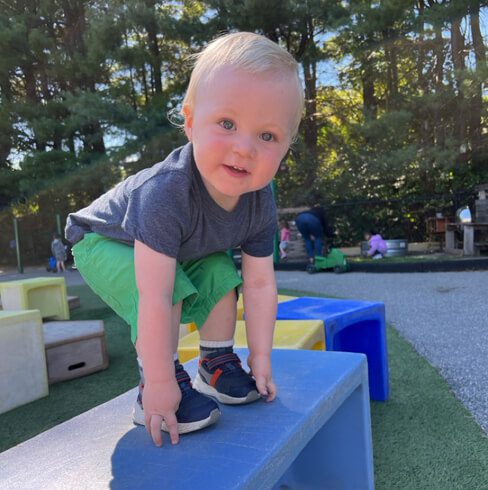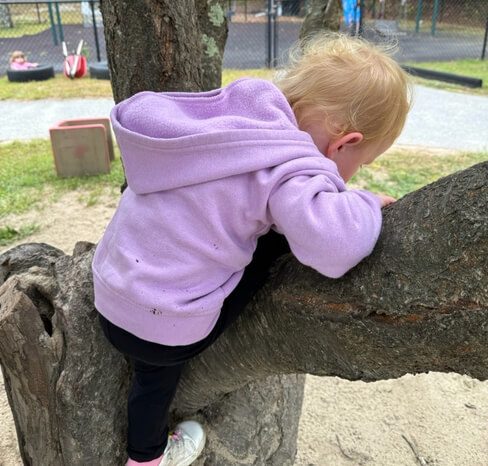Play is a child’s primary activity and form of expression. It is in play that children get to know themselves, their body’s capabilities and their surroundings. Play is crucial for children’s experiences, development, and learning. Risky play is the part of children’s play that involves thrilling experiences and elements of risk (e.g., tree climbing, jumping from a height, building and climbing structures). The opportunities for risk-taking in play have changed in recent decades, including many children who don’t even go outside anymore.
Children have the opportunity at Woodbridge School for positive and exciting experiences because our educators understand how to approach risky play and guide children through these moments. This involves allowing students to take chances in situations where they may have had doubts about their own abilities. With verbal guidance and watching from an arm’s length, there are unlimited discoveries to be made. Mastery of these skills builds self-confidence and good health and provides joy and well-being. Risky play is also important for the process of building up the risk competence that is needed to live a rich and varied life.
Childhood research indicates that overprotection and strong restrictions on play and free exploration can have negative consequences for children, both during their childhood and later in life. Children have less self-assurance and confidence in their choices. They have been shown to have increased anxiety, lower self-esteem, and greater susceptibility towards negative influences.
Risky play in early childhood can help develop a child’s self-confidence, resilience, executive functioning abilities, and even risk-management skills. Studies in children’s injury prevention research shows that engaging in risky play can actually reduce the risk of injury, too.

Practice the 15-second rule.
Instead of advising your child to not climb so high or run so fast while observing them at play, take a moment —15 seconds. Step back and see how your child is reacting to the situation so that you can actually get a better sense of what they’re capable of when you’re not intervening.
This will provide them with an opportunity to figure out for themselves what’s comfortable and what they can do. All while allowing them to acquire those all-important risk-management abilities.
To learn more about Risky Play, read this article. Risky Play: Why Children Love It and Need It | Psychology Today United Kingdom
At Woodbridge School, children learn through play in a safe, fun, and creative environment. Learn more about Woodbridge School serving students ages 18 months through Pre-K.
Contact us to schedule a tour to see how we promote learning through play in a safe and welcoming environment.



